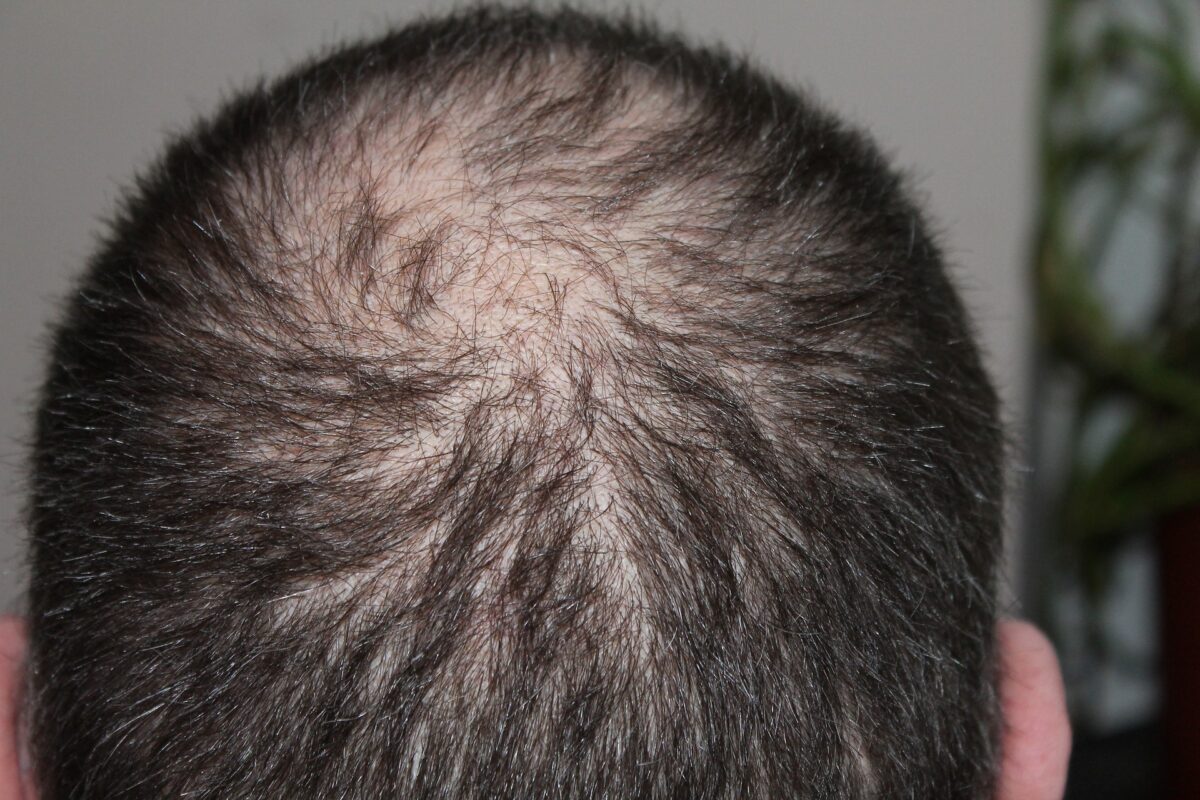For many men and women, hair loss can be a source of insecurity and can negatively impact their self-esteem. This often leads them to seek treatment, with finasteride being one of the most common solutions to prevent further hair loss. However, despite its popularity, this medication can cause adverse effects, including sexual dysfunction and breast tenderness. But don’t worry, there are natural alternatives to finasteride to address hair loss. In this article, we will explore a few options that are safe, effective, and without the unwanted side effects.

1. Saw Palmetto:
Native to the Southeastern United States, saw palmetto is a plant extract that has been used for centuries as a natural remedy for male hair loss. It works by inhibiting the production of DHT, a male hormone that causes hair loss. Saw palmetto can be consumed in capsule form or applied to the scalp as an oil. In a study published in the Journal of Alternative and Complementary Medicine, saw palmetto was found to be as effective as finasteride in improving hair growth.
The recommended dosage of saw palmetto for hair loss varies across different sources. According to a 2-year study, men with male pattern baldness were given 320 mg of saw palmetto per day. Some sources suggest a general recommended dosage between 160–320 milligrams daily.
2. Biotin:
Biotin, also known as vitamin H, is a B-complex vitamin that plays a critical role in healthy hair growth. It works by strengthening hair follicles and preventing hair breakage and damage. Biotin can be found in many foods, including eggs, nuts, and bananas, but it’s also available in supplement form. In a clinical trial published in the Journal of Cosmetic Dermatology, biotin was found to improve hair volume and thickness in women with hair loss.

3. Rosemary:
Rosemary is an herb that has been used in traditional medicine for centuries to prevent hair loss and promote hair growth. It’s believed that rosemary works by stimulating blood circulation in the scalp, which promotes hair growth. Rosemary oil can be applied topically to the hair and scalp, or consumed as a tea. In a study published in Skin med, rosemary was found to be effective in promoting hair growth in people with alopecia.
4. Lavender:
Lavender is another essential oil that has been shown to promote hair growth. It contains compounds that stimulate the growth of new hair cells and improve blood circulation in the scalp. Lavender oil can be applied topically or added to shampoo. In a clinical trial published in the Archives of Dermatology, lavender was found to be effective in treating alopecia areata, a type of hair loss that causes patchy hair loss.
5. Aloe Vera:
Aloe vera is a succulent plant that has several health benefits, including promoting hair growth. It contains enzymes and vitamins that repair and strengthen damaged hair follicles. Aloe vera gel can be applied topically to the scalp or consumed as a juice. In a study published in the Journal of Chemical and Pharmaceutical Research, aloe vera was found to improve hair growth in mice.

6.Pumpkin seed oil:
Pumpkin seed oil has gained attention as a possible natural alternative to finasteride for the treatment of hair loss. Several studies have suggested that pumpkin seed oil might improve hair count and hair thickness, especially in men with androgenic alopecia, or male pattern baldness.
A study conducted in 2014 reported that the oral administration of 400 mg of pumpkin seed oil for 24 weeks to men with androgenic baldness increased hair growth. Phytosterols, sterols found in pumpkin seed oil, are believed to promote hair growth.
The exact mechanism by which pumpkin seed oil works for hair loss is not fully understood. However, it is hypothesized that the oil may inhibit the enzyme 5-alpha reductase, which converts testosterone into dihydrotestosterone (DHT). DHT is a hormone that has been linked to hair loss.
To use pumpkin seed oil for hair growth, it can be applied topically as a scalp massage oil, or it can be ingested in capsule form. It is recommended to consult with a healthcare provider before starting any new treatment regimen.
Hair loss is a common problem that affects many men worldwide, and while finasteride may be a popular solution for hair loss, there are natural alternatives that you can use instead. Saw palmetto, biotin, rosemary, lavender, and aloe vera are all safe, effective, and without the unwanted side effects of finasteride. So instead of resorting to medication, try incorporating these natural remedies into your hair care routine to promote healthy hair growth and prevent hair loss.

